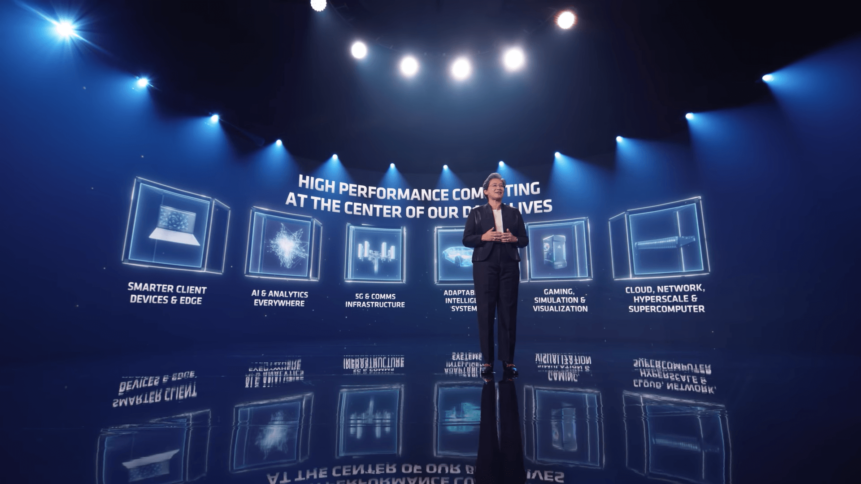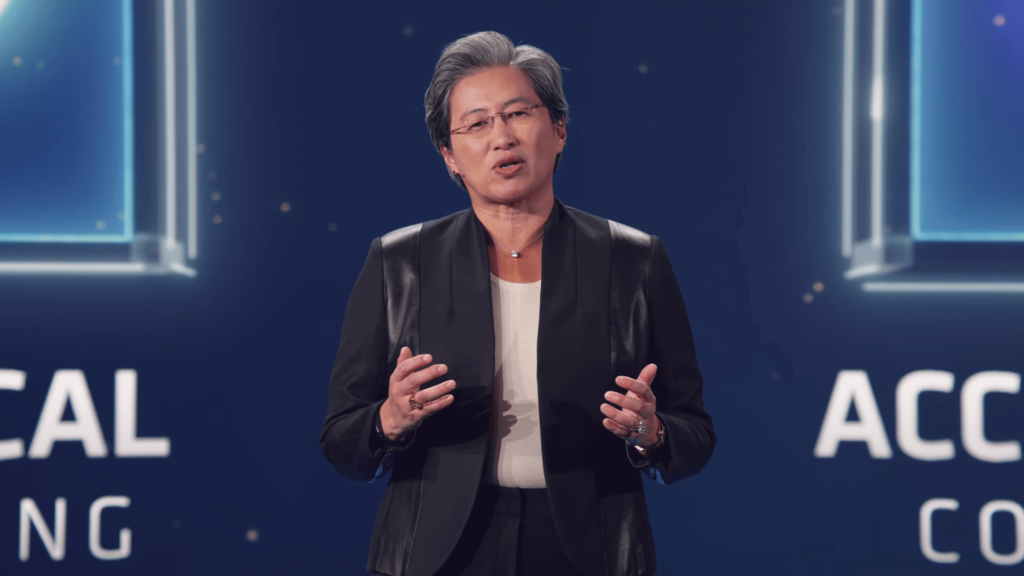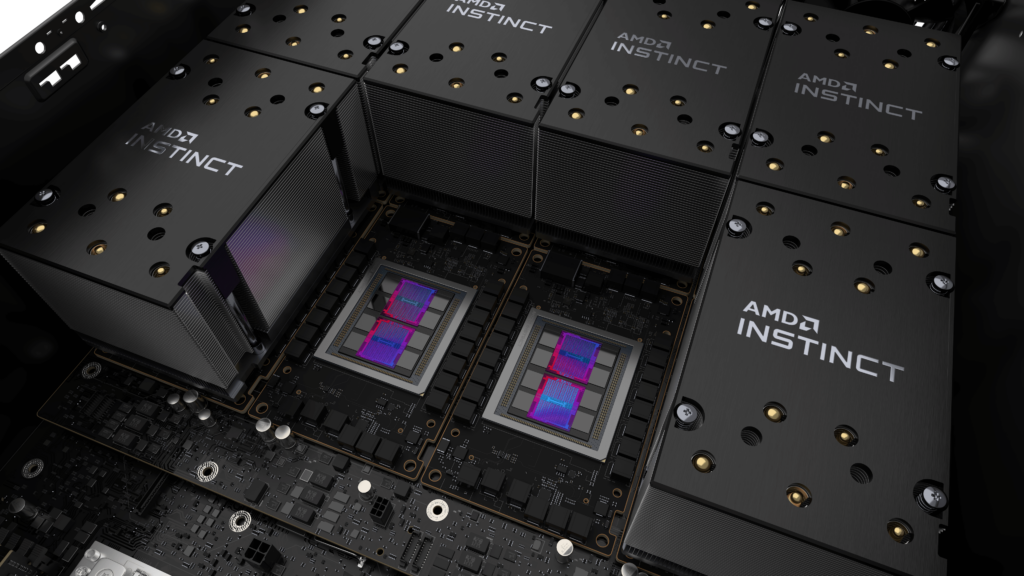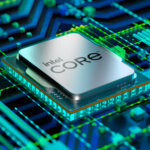AMD strikes chip deal to power Meta’s data centers

AMD chips are making the headlines again, as the company announces a deal with Meta to be their data center chip customer. Meta, the rebranded Facebook parent company, unveiled its Metaverse several weeks earlier. With AMD chips now seemingly a part of Meta’s data center, the announcement established AMD’s presence in the competitive chip market.
Speaking at the virtual Accelerated Data Center Premiere, president and CEO of AMD Dr. Lisa Su said the company is in a high-performance computing megacycle that is driving demand for more computing power to enable the services and devices that impact every aspect of daily lives.
“We are building significant momentum in the data center with our leadership product portfolio, including Meta’s adoption of AMD EPYC to power their infrastructure and the buildout of Frontier, the first U.S. exascale supercomputer which will be powered by EPYC and AMD Instinct processors,” said Su. “In addition, today we announced a breadth of new products that build on that momentum in next-generation EPYC processors with new innovations in design, leadership, 3D packaging technology, and 5 nm high-performance manufacturing to further extend our leadership for cloud, enterprise, and HPC customers.”
At the virtual event, AMD also announced the launch of the AMD Instinct MI200 series accelerators, the world’s fastest accelerator for high-performance computing (HPC) and artificial intelligence (AI) workloads, providing a preview of the innovative 3rd Gen AMD EPYC processors with AMD 3D V-Cache. AMD also revealed new information about its next-gen “Zen 4” processor core and announced the new “Zen 4c” processor core, both of which will power future AMD server processors and are designed to extend the company’s leadership in products for the data center.
Meta is the latest major hyperscale cloud company that has adopted AMD EPYC CPUs to power its data centers. Both companies worked together to define an open, cloud-scale, single-socket server designed for performance and power efficiency, based on the 3rd Gen EPYC processor.

Dr. Lisa Su, President and CEO of AMD. (source – AMD)
AMD chips have been facing competition in the chip market for years, with Intel dominating the industry most times. But recent chip supply and shortage issues have seen AMD make the most of the situation and remain competitive in the industry. Intel, TCMC and Samsung have been dominating the chip industry for several years, but AMD is now seemingly knocking on their doors, thanks to its innovations in chip production.
AMD chips and the data center
During the event, AMD previewed the use of innovative 3D chipset packaging technology in the data center with the first server CPU using high-performance 3D die stacking. The 3rd Gen AMD EPYC processors with AMD 3D V-Cache, codenamed “Milan-X,” represents an innovative step forward in CPU design and packaging, and will offer a 50% average performance uplift across targeted technical computing workloads.
AMD also announced that Microsoft Azure HPC virtual machines featuring 3rd Gen EPYC with AMD 3D V-Cache are available today in Private Preview, with broad rollout in the coming weeks. With the 3rd Gen EPYC CPUs with AMD 3D V-Cache launching in Q1 2022, partners including Cisco, Dell Technologies, Lenovo, HPE and Supermicro are planning to offer server solutions with these processors.

(source – AMD)
The AMD revolution
To make a mark in the industry, MI200 is AMD’s first exascale-class GPU accelerator. Built on AMD CDNA 2 architecture, AMD Instinct MI200 series accelerators deliver leading application performance for a broad set of HPC workloads. The AMD Instinct MI250X accelerator provides up to 4.9x better performance than competitive accelerators for double precision (FP64) HPC applications, surpassing 380 teraflops of peak theoretical half-precision (FP16) for AI workloads to enable disruptive approaches in further accelerating data-driven research.
According to Forrest Norrod, senior vice president and general manager, Data Center and Embedded Solutions Business Group, AMD, AMD Instinct MI200 accelerators deliver leadership HPC and AI performance, helping scientists make generational leaps in research that can dramatically shorten the time between initial hypothesis and discovery.
Key capabilities and features of the AMD Instinct MI200 series accelerators include:
- AMD CDNA™ 2 architecture – 2nd Gen Matrix Cores accelerating FP64 and FP32 matrix operations, delivering up to 4x the peak theoretical FP64 performance vs. AMD previous-gen GPUs.
- Leadership Packaging Technology – Industry-first multi-die GPU design with 2.5D Elevated Fanout Bridge (EFB) technology delivers 1.8x more cores and 2.7x higher memory bandwidth vs. AMD previous-gen GPUs, offering the industry’s best aggregate peak theoretical memory bandwidth at 3.2 terabytes per second.
- 3rd Gen AMD Infinity Fabric™ technology – Up to 8 Infinity Fabric links connect the AMD Instinct MI200 with 3rd Gen EPYC CPUs and other GPUs in the node to enable unified CPU/GPU memory coherency and maximize system throughput, allowing for an easier on-ramp for CPU codes to tap the power of accelerators.
The chips are currently available from HPE in the HPE Cray EX Supercomputer, and additional AMD Instinct MI200 series accelerators are expected in systems from major OEM and ODM partners in enterprise markets in Q1 2022, including ASUS, ATOS, Dell Technologies, Gigabyte, Hewlett Packard Enterprise (HPE), Lenovo, Penguin Computing and Supermicro.










